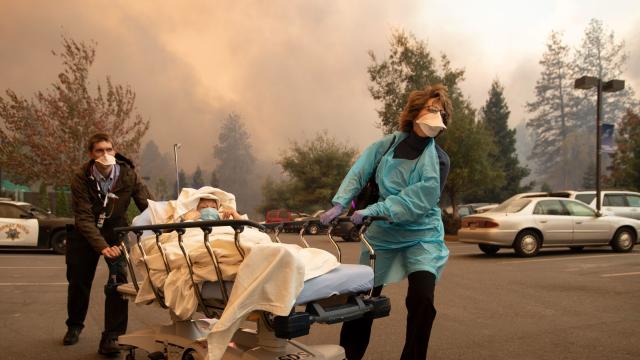Of all 20 member countries in the G20 — a group of powerful nations which accounts for 85% of the world’s GDP and creates some 78% of all global greenhouse gas pollution — the U.S. has been hit hardest economically by extreme weather fuelled by the climate crisis. But when rather than using covid-19 economic stimulus bills to speed up the clean energy transition, the U.S. poured money into bailing out polluting corporations.
The 2020 Climate Transparency Report was produced by a global partnership of 14 think tanks and nonprofits and supported by the World Bank Group. The authors rated the climate-friendliness of each of the G20 members’ economic choices, including aid packages in the wake of the pandemic and drawing on past the pre-existing Greenness of Stimulus Index and Energy Policy Tracker in addition to qualitative analysis.
The report was released late Tuesday night, ahead of the annual G20 meeting later this week in Riyadh. Leaders are expected to discuss their coming plans for economic aid during the ongoing pandemic.
The 70-page study shows that the U.S. should have had enough reason to act on climate even prior to the coronavirus. Between 1999 and 2018, climate disasters like fires and floods in the U.S. resulted in $US51.6 ($71) billion in economic losses every year over that period. No other countries even came close to losing that much: The next countries on the list are China and India, which racked up $US35 ($48) billion and $US14 ($19) billion respectively over that 19-year period.
The high annual average losses over that period were punctuated by extremes, including a record-setting 2017 when climate change-fuelled disasters cost the U.S. $US306 ($419) billion. That year saw supercharged hurricanes and wildfires made materially worse by carbon pollution.
Despite that, the U.S. has continually shown allegiance to the very industries that created the conditions for those costly and deadly (the country averaged 445 fatalities on average annually) events, including oil, gas, and coal. As a result, the nation is not on track to meet its pledge under the 2015 Paris Agreement (made before President Trump was elected and pulled the country out of the agreement) to reduce its greenhouse gas emissions 25% below 2005 levels by 2025.
Even compared to other G20 countries, which are all major polluters and together account for an astonishing 90% of all historical greenhouse gas emissions, the U.S. isn’t doing its due diligence on the climate crisis. The country has the fourth-highest per capita emissions in the elite group. That’s in large part due to direct subsidies: “The U.S. has provided more unconditional financial support to the fossil fuel sector than any other G20 country has provided to all energy sectors combined,” the report says.
Amid the devastating economic fallout of the covid-19 pandemic, the U.S. has a chance to turn it around on climate. But instead, national leaders have so far followed the destructive patterns of behaviour when crafting aid packages, and no other stimulus relief is on the horizon.
“No direct support for clean energy is mentioned in the Coronavirus Aid, Relief and Economic Security (CARES) Act,” the report says.
Instead, officials signed a bill to support polluting fossil fuel companies and airlines — another massive source of greenhouse gas — without even including stipulations to protect the climate in their business dealings. The report estimates that 90 fossil fuel companies will reap financial benefits from the CARES Act, “including 10 out of 40 fracking companies.”
Though the U.S. is in a league of its own, it’s far from the only G20 country to screw up ensuring pandemic recovery follows a clean energy path. All G20 members besides Germany have put money toward domestic oil, coal and/or gas, and even Germany subsidized airlines. Further, only four G20 nations supported renewables more than fossil fuels, airlines, or the auto industry.
It’s not too late for these powerful countries to change course. The report makes suggestions for all 20 members of the group, calling for investments into renewable energy, sustainable agriculture, conservation, and research and development into new sustainable technologies and policies. It also calls for stronger environmental regulations and bigger taxes on polluting industries, and for all leaders to stop all public finance to dirty fuels.
Even in the G20 countries’ existing stimulus packages, there were some glimmers of hope. Eighteen G20 countries did provide some economic stimulus to renewable energy, with the exception of Saudi Arabia and Russia. But the report shows that aid has been far from enough, and that countries are still giving way too much money to polluters.
Of every country in the world, G20 or not, the U.S. has the most work to do because it’s responsible for the largest share of the problem historically. But as the report shows, the U.S. also has a lot to gain by taking climate action, in terms of not only money but also lives.
